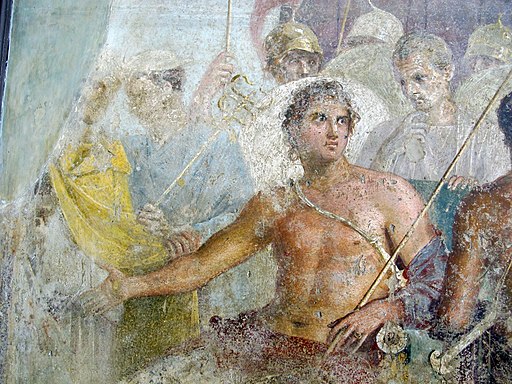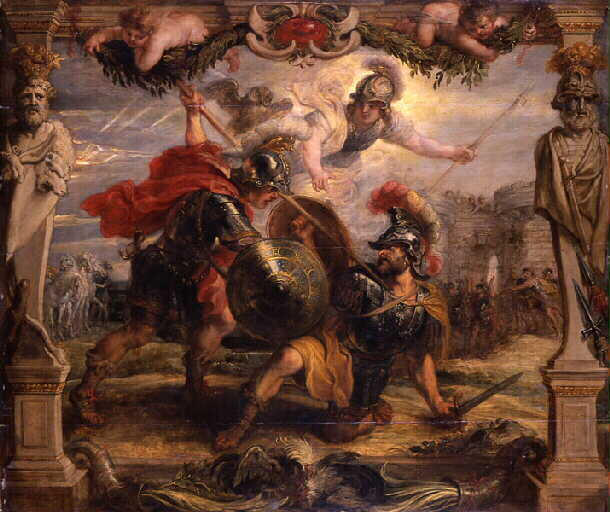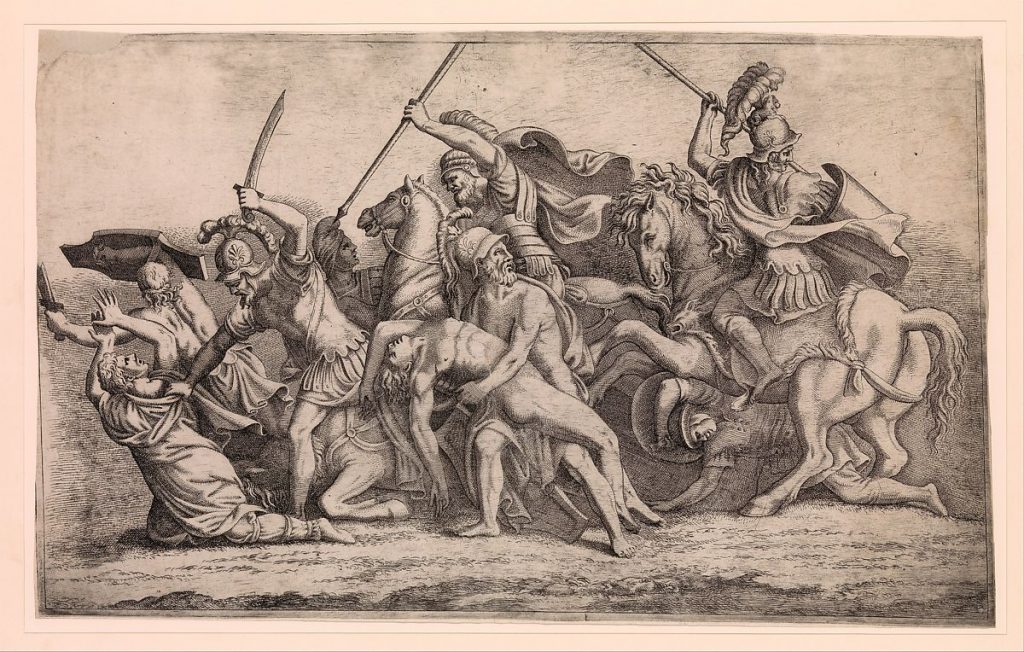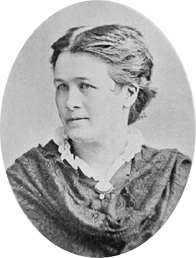Now while Patroclus is attempting to scale the Trojan wall, the terrifying god of light Apollo approaches him through the bloody battle obscured from mortal eyes by a dense mist. He approaches Patroclus from behind and strikes him in the back. Achilles’ cousin loses sensation in his limbs, his vision blurs, and he can hardly see Hector coming right at him. Hector rams the bronze tip of his spear into him from the hilt, striking him in the lower abdomen. Patroclus crashes to the ground and instantly falls into the abyss of death. Achilles recognizes the moment the messenger enters his tent. Nobody has had the guts to tell him the news. So, it has been ordered that Old Nestor’s son inform Achilles about Patroclus’ passing. Grieving to the point of blackness, Achilles distributes ashes across his head and covers his face in them. He rolls in the dirt and tears his hair out in frustration. Nestor’s son, moved to tears, departs, leaving the warrior in sorrow. Hector will die at the hands of Achilles’ strikes from this point forward since he will only live to exact revenge on Patroclus. When he returns to the fray, Achilles is aware of what to anticipate.1
Long ago, when there were any men, Zeus, Poseidon, and all the other gods approached Thetis, a sea nymph who would eventually give birth to Achilles. She was one of the most sought-after inhabitants of this world, and Zeus desired her most passionately, but an oracle forewarned the god of the Olympus. He would have a kid with Thetis who would surpass both his father and himself in might and evil. Zeus eventually gave her up, much like all the other divine beings, who were terrified of one day being usurped by their own progeny. Zeus had always adored Thetis despite the fact that she opted to dwell alone and reclusively at the ocean’s bottom. He granted her the hand in marriage of a human with wonderful attributes, Peleus, in order to spare her the suffering of spending all of eternity alone. Achilles, the powerful, the divine, whom Zeus has been following over since boyhood, was born from the union of Thetis and Peleus. Thetis did everything in her power to give her son immortality. She took the young Achilles down to the Styx, the river of torment, one night and threw him into its depths. He may become immune to harm thanks to the Styx’s water’s strength.2
Agamemnon, the monarch of all Greece, assembled the greatest warriors as the Trojan War got underway, but Achilles was the only one who wasn’t present. It is difficult to imagine that this valiant young man, who was thought to have no competitor on earth, would decide against enlisting in Agamemnon’s army. Agamemnon shrugged his shoulders when he learned Achilles wouldn’t join the Greeks in battle. He hated this man, but there was nothing he could do about him. Achilles was just an unruly soldier who challenged his authority and never missed a chance to remind him in front of others of his greed and desire for power. Achilles was the Greek ruler that Agamemnon despised the most. However, older Nestor felt that he had to stand by the Greeks. The gods had blessed Achilles, making him their greatest warrior. The victory would not be feasible without him.3
Agamemnon reluctantly dispatched Ulysses to Phthia to retrieve Achilles and his strong Myrmidons army. Achilles’ mother Thetis welcomed Ulysses with trepidation. She was aware of the manipulations used by the king of Ithaca, but more than that, she was reminded of the awful prophecy she had kept hidden from everyone, not even her son. Achilles will find fame and his name will resound throughout the ages if he heads to Troy, but he will pass away in his prime. If he chooses to remain in Phthia, he will live a long, happy life surrounded by family, but when his children’s children are grown and gone, no one will remember him. Fortunately for Thetis, Achilles answered each of Ulysses’ arguments with a clear no. For the sake of a tricked wife’s honor or to further the empire of a monarch he detested, he would not travel to Troy to battle. Thetis wrapped her kid into her arms and told him the terrible fate he had avoided in her relief at having him remain by her side. Achilles was shocked to know that he had the option of either living a comfortable and happy old age or dying young and being unforgettable. He gave it some serious thought before turning to face Ulysses. He had decided what to do.4
The Greek army had been paralyzed on this riverside for ten years. The Trojans had battled them for ten years. At the base of Troy’s fortifications, even the most fierce assaults had repeatedly fallen short. All the nearby cities that had sworn loyalty to Troy had been sacked and pillaged by Grecian forces. However, a mystery illness began to decimate the Grecian army, and thousands of soldiers began to perish. Ajax, Menelaus, Ulysses, Nestor, and the other Grecian kings were present as Achilles entered Agamemnon’s tent. He was with Calchas, a sorcerer. A young woman was resting in a tent corner when the soothsayer pointed to her. The high priest of Apollo’s daughter went by the name Chryseis. Everyone recalled that she had been taken during a raid on a city close to Troy and given to Agamemnon, who would not return her to her father. The high priest had asked God Apollo, whose most devoted servant he was, for assistance, as all people do when overcome with sorrow. After hearing him, Apollo hurried to the Troy plain and shot his death-carrying arrows at all the Greek soldiers. The soothsayer also said that no Greek soldier would survive until Chryseis was delivered to her parents, Apollo and Ares. Agamemnon was encouraged by Achilles and all the other kings to return Chryseis to her father and protect the Greek army, but the king of kings demanded restitution. He would not keep his hands empty.5

Agamemnon turned to look at Achilles, who had also been awarded with Briseis, a stunning young lady. Then the king of kings would deliver Chryseis to her father, let him give her to Agamemnon. The Greek leaders stopped, and even the gods above took a deep breath, but as soon as Agamemnon said these words, Achilles grabbed his sword and prepared to cut the neck of the king of kings. However, just as the blade was about to erupt from its case, an imperious power halted it. Athena stopped Achilles’ hand and whispered in his ear that Hera, the divinity with the white arms, had sent her. Athena was invisible to everyone, but not for Achilles who could see and interact with the divine being. He was aware of how much these two gods adored and guarded him. Agamemnon’s demise would end the Greeks’ chances of victory and herald Troy’s triumph. Achilles must maintain his composure since Athena promised that she would get revenge on him. Achilles yelled at Agamemnon as he pulled his hand from the lovely sword’s hilt. He referred to him by every imaginable epithet, including profiteer, wretch, inept, and drunken. He recalled that over all of these years, it had been he, Achilles, who had gone from win to victory. Achilles seized the wooden scepter studded with gold that the Greeks brandished when they proclaimed the most serious oaths. Before all the kings assembled around Agamemnon, he declared that he would give Briseis to the king of kings, but, from now on, he and his Myrmidons, the terrible warriors who terrorized the Trojans, were withdrawing from the battle. Agamemnon remained impassive and answered him. Then, if your heart tells you to run, do so, I am not pleading with you to stay for my sake, I assure you. Others who will respect me are with me, most notably Zeus, the Lord of Counsel. Of all the monarchs that Zeus raises, you are the one I detest the most since you like conflicting, conflicts, and fights beyond all else. If you have a lot of strength, I believe a deity granted you that ability.6 After a few time, Patroclus, met two men outside Achilles’ tent, they were responsible for taking Achilles’ prize away from him. Agamemnon had ordered them to bring Briseis for him. On the other hand, Achilles did not hold them responsible for anything; rather, Agamemnon was the target of his rage. Patroclus dragged Briseis away from the tent reluctantly, gently taking her by the arm. Following one more glance at Achilles, the young woman departed with the help of Agamemnon’s agents. Achilles, who was filled with fury, considered Agamemnon’s choice, which he needed to concur with. It was a misuse of authority, an injustice, and a reflection of disrespect and shame. Achilles barricaded himself inside his tent.7
Until Agamemnon expressed regret to the hero who had been insulted, the Trojans would continue to defeat the Greeks. It was time for Agamemnon to right the wrong he had caused by withdrawing Briseis from Achilles after several strikes from both sides and with the Greeks struggling in the battle. He was the one who made Achilles flee. Infuriated by his own side, Achilles sat in his tent for the king of kings to reconsider his choice, express his regret, and show that he is feeling sorry about what he caused to the son of Thetis. Agamemnon saw that the Greeks had little hope of turning the tide of the battle without Achilles and his army, the haughty Myrmidons. This reality, which he detested, was unavoidable. He said that he was willing to return Briseis and to lavish Achilles with gifts while having death in his spirit. Ajax and Ulysses were the people Agamemnon picked to deliver it to the son of Peleus. Patroclus, Achilles’ devoted buddy, was by his side while he lay on cushions in his tent. Achilles was startled, so he set down his lyre and got up to find out why the kings were there. Ulysses responded because he understood that Achilles would miss the chaos of combat if he did not chose to control his inner rage. Ulysses told Achilles about the tragedy the Greeks had experienced since he stopped fighting. However, Achilles had already made up his mind and left his tent, announcing to his allies that he would no longer fight for Agamemnon and would be returning to Greece. Despite the fact it was Menelaus, the brother of Agamemnon, emperor of the kings, he reminded them that he only consented to join this battle because it suited him and not to exact revenge for the honor of a betrayed spouse. Ulysses was still silent; the Greeks would go on to lose the conflict. Achilles retreated into his rage. Most of people were no longer hopeful and turned their backs to the most feared warrior.8
The Greek ships were reached by the Trojans. They resembled a large number of stars when there were torches shining in the darkness. The fleet would start burning soon. The Greeks were about to be dumped into the water. On the opposite side of the camp, Patroclus was closer to the injured Greek soldiers, applying powders to soothe the agony on the wounds of Ulysses, old Nestor, Agamemnon, and Menelaus. One of the Argonauts who followed Jason on his expedition to retrieve the Golden Fleece was Menoetius, Patroclus’ father of the cousin of Achilles, Patroclus who killed one of his playmates when he was a kid after being overcome by a violent fury. He was afterwards sent to Phthia, where he was brought up alongside the infant Achilles. Together, the two guys went to war in Troy since they had grown up around each other.9
Patroclus could hear the growing commotion and dread coming from the camp. His own countrymen, the Greeks, were being attacked by the Trojans. He quickly ran to the tent of Achilles, where he found him playing the lyre with no weapons in sight. Achilles was playing the lyre as the Greeks were all going to perish. With teary eyes, Patroclus wanted to tear the guitar from his friend’s hands out of desperation. Patroclus, the guy who was sobbing like a child, caught Achilles’ attention for a while. He remarked that he resembled a little child clutching to his mother’s skirts, yet he still loved him dearly as we do. After gathering himself, Patroclus looked at Achilles as if he were seeing him for the first time. Patroclus bowed down before his friend and begged him in a desperate act. Why not let Patroclus to head the Myrmidons and give him access to Achilles’ renown armor and weaponry if Achilles was set to wallow in his rage? He Patroclus may be the Greeks’ ray of hope. Who knows whether the Trojans, who believed him to be the heavenly Achilles, would continue the battle?10
Cries and the sound of slicing blades could be heard rising from the coast as the sounds of war became louder. Achilles shook his head rebukingly and acknowledged that his animosity for Agamemnon was unquenchable. He did not forget the fury, and he once more told his buddies that no man has the right to deprive one of his equals and take away his prize just because he is powerful. Patroclus was eventually permitted by Achilles to wear his armor and lead the valiant Myrmidons into combat. The Myrmidons were the fiercest warriors ever known. Achilles approached them and sternly commanded them to obey Patroclus just as he would. The word of the Myrmidons’ return to the battle quickly made its way through the lines of the Grecian army after being carried by the wind. All was not lost, and hope was revived. The Myrmidons, led by Patroclus, swept down upon the Trojans like a cyclone. The Trojans quickly began to flee after witnessing what they thought to be the heavenly Achilles leading his army. The Trojans quickly disappeared from the area around the Grecian ships. Patroclus leapt forward, his heart teeming with incredible bravery. The bodies piled up around him as his sword slashed skulls and splintered bones. In his aftermath, the Greeks had come together and destroyed everything in their path. Patroclus, who was unflinching, disregarded Achilles’ warning and decided to follow the fleeing Trojans in order to prevent them from regaining control of their city. One by one, he executed them as he charged. A chariot abruptly materialized in front of him. A guy wearing a brass helmet and breastplate and carrying two spears sprang out. It was Sarpedon, king of the Lycians and one of Troy’s most courageous defenders. Both men charged at one another. Both the point of the bronze spear and Sarpedon’s spirit were released when Patroclus withdrew it from his foe’s breast. Patroclus attempted to scale the Trojan wall, but he was killed in the process.11

In the caves of the island of Lemnos lived the god of blacksmiths, Hephaestus. He was the son of Zeus and the divine Hera. Husband of Aphrodite, he was as ugly as the goddess of love was beautiful. He and he alone knew the secret of the destructive weapons of the gods of Olympus. However, he would forge weapons for a mortal, for Achilles the incontestable Greek warrior filled with rage. Hephaestus threw brass, bronze, gold, and silver into the fire. For a long time, he worked the precious metals. By the time the work was finished, the first rays of dawn were illuminating the Grecian camp and ships. Hephaestus gave the armor to Thetis, who had helped raise him when he was a child. Thetis took the armor from the god’s hands and set it down near her son. She found him still in tears, lying upon the body of Patroclus. When Achilles saw the shield, the sword, and the armor, his eyes lighted up. He got to his feet, put on his new armor, took up the newly forged sword and spear, adjusted the shield with its magnificent chasing, then, he reflected one last time upon the body of his friend. Spoke in a low voice he swore an oath. He would not bury him until he had brought back the head of his murderer, the head of Hector, Prince of Troy.12
Achilles embraced his mother for a long time; Thetis knew that her son was bidding her farewell. By giving him these weapons, the mother was sending her son to his death, and no god, not even Zeus, would be able to oppose the fate that awaited him. When they saw their leader, the Myrmidons froze, both amazed and fearful. The eyes of Achilles were filled with a greater anger than anyone had seen before. Achilles strode along the seashore, uttering furious cries. All the warriors came running, even those whose duty it was to watch the ships. Achilles anger would be the vengeance of the Greeks; it heralded the end of Troy and the extermination of the Trojans. At the same moment, Hector was about to gather his men and lead them into battle. The whole plain resounded with the dreadful clashing of the two armies, men facing men and gods facing gods in an incandescent whirlwind. Achilles clove his way through the fray with sword and spear, it was Hector’s blood that he wanted. He slaughtered all those in his path. Meanwhile, Hector tried to revive the Trojans’ valor, he implored them to stay firm. He promised to defeat Achilles even though his hands were made of fire.13
The fugitives plunged into the waters of the Scamander, the river that surrounded Troy, but nothing stemmed Achilles’ anger. Without hesitation, he threw himself into the deep waters and cut down all those within reach. The river became red with the blood of Trojan warriors. Without respite or pity, Achilles mowed, slaughtered, beheaded with every turn. All paid for Patroclus’ death. Then, something happened that neither mortal nor God had ever seen before. Suddenly a dark wave rose around Achilles. The river began to swell, it became menacing. The Scamander River had never passed through such cruelty, and then it rose in front of Achilles, terrifying, ready to engulf him. Achilles had disappeared, swept away by the torrent of this horrifying river. Hephaestus interfered and saved Achilles from a hideous death. The river calmed down, and Achilles was released. Stunned, he hauled himself onto a bank. Around Achilles, the waters of the Scamander were in the grip of flames. The riverbed gradually dried up. The river gave back the Trojans’ armor; it vomited up the corpses choking its flanks. The river begged Hera for mercy, it would spare Achilles if she stopped torturing its waters and banks. The goddess agreed, it was not good for a god to be tormented for the sake of a mortal. At a sign from here, Hephaestus quenched its flames, and the water resumed its peaceful course. Achilles was released. Stunned, he hauled himself onto a bank, the time had come to finish with Troy. Achilles burned only with the desire to fight, thought only of murder, of blood, of the painful sobs of men. Like a god, Achilles sprang in every direction, rushing at his victims. He struck the young Dryops in the neck, with his sword he took the life of the noble Dardanus. Then Tros, son of Alastor fell to his knees in the hope that by making him his prisoner, he would spare him. Achilles struck him on the head with his sword. It was then that he pierced the shoulder of Lycaon, son of Priam, and Hector’s half-brother, and cut off his head before sending it rolling far away with his helmet. The black earth was drenched in blood, and this terrible sign stimulated the ardor and fervor of the Greeks.14
When Priam saw that his army had been routed from the top of the walls, he gave the order to open the gates so that his troops may enter. All but one of the men hurried inside. Hector hardly picked up Priam’s voice. Hector ignored his father’s pleadings as Priam extended his hands, pleading with him to turn back. Achilles arrived as he was waiting for him. Thetis’s kid had blood and grime on his mighty hands, which were ravenous for fame. Hector stumbled. His entire body trembled with terror, a terrible fear brought on by an uncontrollable, unknown fear. Hector swung around and took off. Achilles ran in his direction. Under the amazed eyes of humans and gods, they circled Troy’s walls three times. Hector tried to avoid Achilles’ wrath by running away from his doom until he ran out of air. Achilles was more rapid. He intended to tire him in the same way that one would exhaust an animal before striking it fatally in the rear. For the sake of Troy’s dignity and the protection of their country, Hector must turn and confront him. They would discern who Zeus planned to bestow honor upon in the process.15
It seemed as though all of Troy had rallied to Hector’s rescue when he recovered the bravery that he had before. Hector paused before facing Achilles. He spoke to his adversary calmly. Despite being the divine Thetis’ son, Achilles was not invulnerable. Hector has already demonstrated the lethal potential of his spear. If he won, he would take his opponent’s magnificent armor, but he made a promise not to harm his body in any way and to give his corpse back to the Greeks. Achilles was allowed to make a similar pledge. Everything was now in the hands of the gods; let them make the decisions and serve as the guarantee for this contract. Achilles yelled in a dreadful voice, enraged and eager to murder his opponent, declaring that he knew his fate was to die here, away from his parents. No agreement could be reached between them; he would slay Hector, the man who had killed Patroclus, and his spirit would spend all of time in the underworld. Hector launched his bronze spear at Achilles, but Athena deflected it with a breath in the direction of the thousand-carved shield. Achilles’ shield was uncut by Hector’s mighty spear. The covering of gold Hephaestus gave him prevented death. Hector had been chosen by fate. Hector, however, had no intention of passing away without a battle, without honor, or without performing a heroic deed that would live on in the memory of future generations. His stunning bronze armor, which he had taken off the powerful Patroclus after slaying him, provided protection for his whole body. At the base of his throat, the only dangerous area that was still exposed was there. Hector’s body steadily lost life, and the terrifying shadow overtook him. Hector’s blood-stained armor, which Achilles had previously given to Patroclus, was taken from him. Achilles cut openings in the dead man’s ankles and bound them to his chariot with thongs. The dust trailed behind Hector’s head. Hecuba, a mother, and Andromache, a wife, were both heard crying out in agony.16

Achilles made one more trip back to the Troy gates after circling the city walls in his chariot. He turned to mock the mourning locals before returning to the Greek ships. The Grecian camp was in darkness while Patroclus’ body and jars of honey and oil were being burned on a large bonfire. The other kings and Agamemnon had gathered around the coffin. The pyre caught fire. A furious Achilles gave the order to gather his friend’s ashes after the body was burned and deposit them in a golden urn, into which he would later pour his own ashes. Hector was supposed to be abandoned to the dogs and left to decay, but the gods intervened, suggesting that Hector deserved a dignified funeral in the presence of his loved ones. Achilles granted the request and returned Hector’s remains to his family.17
The Trojan Plain was characterized by a quiet that had not existed for 10 years. Smoke ascended to the sky in wisps. It was the wreckage of the Greek camp that had been destroyed by its own soldiers. The biggest fleet ever constructed, that of Agamemnon, was gone. There was nothing left on the coast save this odd wooden monument, and the horizon was completely vacant. A huge horse left behind. The Trojans thought the Greeks had abandoned the fight and gone back to the sea. The Trojan king Priam gave the command to unlock the gates. He left in company with Troy’s top dignitaries. They all turned their attention to the horse. However, inquiries were flooding in. What was the purpose of this peculiar piece of wood carving? They finally decided to transport the enormous horse to the city after much deliberation. They had no idea that numerous Greek warriors, including the finest Achilles, would be concealed within the horse. Trojans were so inebriated that they were rolling around on the ground while dancing in the streets. Sleep had overtaken all occupants as night fell, casting a deep shadow across the Troy plain. Greek soldiers entered the city via the gates they had unlocked in an instant as they began to emerge from the horse. There would be no mercy for the boys and daughters of Troy while the Trojan people and the city were being butchered. At that moment, the warrior-crushing Achilles, drenched in the blood of his victims, entered Priam’s palace. A very beautiful young woman was standing in front of him. It was Polyxena, Priam’s eldest daughter. She had her shirt torn off by two bloodthirsty Greek warriors, who were getting ready to rape her. After breaking their necks, Achilles freed Polyxena. He pondered how stunningly beautiful she was. There was no time for Achilles to pursue this further. Paris, with his curved bow, was hiding behind a rampart and was enraged. He had successfully targeted Achilles’ back, which was directly in front of him. The arrow, however, had enigmatically altered its trajectory and lodged itself in Achilles’ heel at the last second. No mortal, including Paris, could see that the god Apollo, who witnessed the bloody murder that covered his city, had altered the course of the arrow. The renowned Greek warrior’s secret was only known by Apollo. In his final moments, Achilles’ mother’s words, If you go to Troy, your fame and your accomplishments will be honored till the end of time, but you will die in the blossom of youth, reverberated in his mind. Achilles flashed a peculiar smile, and the pitch-black night hid his eyes.18
- The Iliad and The Odyssey, Season 1: Episode 7: “Patroclus and the Myrmidons,” Producers Sylvain Bergere et al., ARTE France, 2020 (25:46 runtime). ↵
- The Iliad and The Odyssey, Season 1: Episode 3: “The Wrath of Achille,” Producers Sylvain Bergere et al., ARTE France, 2020 (25:46 runtime). ↵
- The Iliad and The Odyssey, Season 1: Episode 2: “Time for Sacrifice,” Producers Sylvain Bergere et al., ARTE France, 2020 (25:49 runtime). ↵
- The Iliad and The Odyssey, Season 1: Episode 2: “Time for Sacrifice,” Producers Sylvain Bergere et al., ARTE France, 2020 (25:49 runtime). ↵
- The Iliad and The Odyssey, Season 1: Episode 3: “The Wrath of Achille,” Producers Sylvain Bergere et al., ARTE France, 2020 (25:46 runtime). ↵
- Homer, Iliad, Book 2, line 172-205. ↵
- The Iliad and The Odyssey, Season 1: Episode 3: “The Wrath of Achille,” Producers Sylvain Bergere et al., ARTE France, 2020 (25:46 runtime). ↵
- The Iliad and The Odyssey, Season 1: Episode 5: “The Blood of the Goddess,” Producers Sylvain Bergere et al., ARTE France, 2020 (25:55 runtime). ↵
- The Iliad and The Odyssey, Season 1: Episode 7: “Patroclus and the Myrmidons,” Producers Sylvain Bergere et al., ARTE France, 2020 (25:46 runtime). ↵
- The Iliad and The Odyssey, Season 1: Episode 7: “Patroclus and the Myrmidons,” Producers Sylvain Bergere et al., ARTE France, 2020 (25:46 runtime). ↵
- The Iliad and The Odyssey, Season 1: Episode 7: “Patroclus and the Myrmidons,” Producers Sylvain Bergere et al., ARTE France, 2020 (25:46 runtime). ↵
- Homer, Iliad, Book 18, line 127-590. ↵
- Homer, Iliad, Book 19, line 1-113. ↵
- Homer, Iliad, Book 21. ↵
- The Iliad and The Odyssey, Season 1: Episode 9: “Vanquish or Die,” Producers Sylvain Bergere et al., ARTE France, 2020 (25:50 runtime). ↵
- The Iliad and The Odyssey, Season 1: Episode 9: “Vanquish or Die,” Producers Sylvain Bergere et al., ARTE France, 2020 (25:50 runtime). ↵
- The Iliad and The Odyssey, Season 1: Episode 9: “Vanquish or Die,” Producers Sylvain Bergere et al., ARTE France, 2020 (25:50 runtime). ↵
- The Iliad and The Odyssey, Season 1: Episode 10: “The Trojan horse,” Producers Sylvain Bergere et al., ARTE France, 2020 (26:16 runtime). ↵




7 comments
Joshua Marroquin
Forst of all, Congratulations on constructing a very well written article, that which got published as-well as nominated for an award. I do wish you the best of luck. I am amazed on how much information there was to learn about the Achilles and the Ihads. Because of this article I can clearly understand this story to a new depth.
Kelly Guadalupe Arevalo
Hello Enrico. Congratulations on your nomination. It is always amazing for me to remember or re-read these Greek myths, they always convey this sense of heroism and action, which is just incredible. It was great to see how you were also able to share this story in such an engaging way. Good job!
Courtney Mcclellan
Congratulations on you nomination. You have really great story telling skills and really good narrative creation. Your article flowed very well and it felt like a book that has been around for years, I have always love mythology and this story made me very nostalgic for the first time i had read it. Your images really brought the article to life and so did your narrative creation.
Dylan Vargas
Now Greek mythology is not my strong suit but reading this article made me very interested in the topic of Achilles and what occurred with their story. It was informative in the way that they told the story and gives us solid evidence and story to help support the article so we could backtrack if needed. The story of Achilles and the Illiad has definitely got me more interested in this matter within Greek mythology.
Francisco Caballero
This was a very well written article. It was captivating and grabbed the readers attention from the start. The author told the story very well and greatly explained the story. I was a little familiar with the story prior to reading but I learned a lot more by reading this article.
Vianey Centeno
This essay, in my opinion, was quite well written and told a great narrative. The tale of Achilles and the Iliad has long captured my attention. I was captivated by this essay the entire time and couldn’t put it down. I’ve never been very educated about Achilles’ and the Iliad’s stories but it seemed so detailed in this article. Both sides’ motivations and actions are clear from their historical backgrounds. I really enjoyed reading this essay because it was so well written.
Lorena Maldonado
I think this was a very well written article with fantastic story telling. I have always loved the story of Achilles and the Iliad. This article definitely fascinated me and kept my attention throughout. I think it had a really good flow and I have always thought that the story of both Achilles and the Iliad was very heartbreaking. It is easy to see where both sides come from and why they do what they do. This was an excellent article that I definitely enjoyed reading.